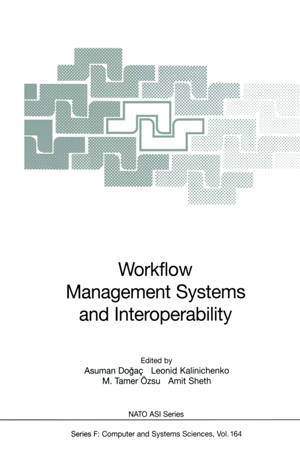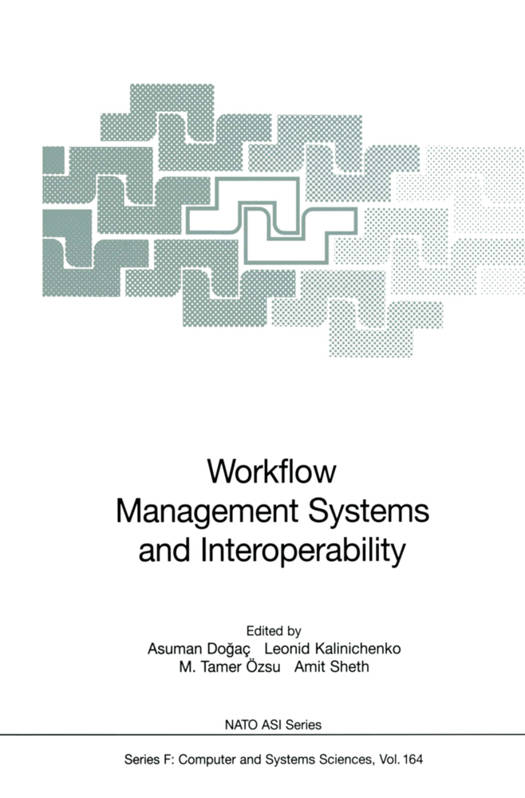
Je cadeautjes zeker op tijd in huis hebben voor de feestdagen? Kom langs in onze winkels en vind het perfecte geschenk!
- Afhalen na 1 uur in een winkel met voorraad
- Gratis thuislevering in België vanaf € 30
- Ruim aanbod met 7 miljoen producten
Je cadeautjes zeker op tijd in huis hebben voor de feestdagen? Kom langs in onze winkels en vind het perfecte geschenk!
- Afhalen na 1 uur in een winkel met voorraad
- Gratis thuislevering in België vanaf € 30
- Ruim aanbod met 7 miljoen producten
Zoeken
Workflow Management Systems and Interoperability
€ 185,45
+ 370 punten
Omschrijving
Workflow management systems (WFMS) are enjoying increasing popular- ity due to their ability to coordinate and streamline complex organizational processes within organizations of all sizes. Organizational processes are de- scriptions of an organization's activities engineered to fulfill its mission such as completing a business contract or satisfying a specific customer request. Gaining control of these processes allows an organization to reengineer and improve each process or adapt them to changing requirements. The goal of WFMSs is to manage these organizational processes and coordinate their execution. was demonstrated in the first half The high degree of interest in WFMSs of the 1990s by a significant increase in the number of commercial products (once estimated to about 250) and the estimated market size (in combined $2 billion in 1996. Ensuing maturity product sales and services) of about is demonstrated by consolidations during the last year. Ranging from mere e-mail based calendar tools and flow charting tools to very sophisticated inte- grated development environments for distributed enterprise-wide applications and systems to support programming in the large, these products are finding an eager market and opening up important research and development op- portunities. In spite of their early success in the market place, however, the current generation of systems can benefit from further research and develop- ment, especially for increasingly complex and mission-critical applications.
Specificaties
Betrokkenen
- Uitgeverij:
Inhoud
- Aantal bladzijden:
- 526
- Taal:
- Engels
- Reeks:
- Reeksnummer:
- nr. 164
Eigenschappen
- Productcode (EAN):
- 9783642637865
- Verschijningsdatum:
- 8/10/2012
- Uitvoering:
- Paperback
- Formaat:
- Trade paperback (VS)
- Afmetingen:
- 156 mm x 234 mm
- Gewicht:
- 757 g

Alleen bij Standaard Boekhandel
+ 370 punten op je klantenkaart van Standaard Boekhandel
Beoordelingen
We publiceren alleen reviews die voldoen aan de voorwaarden voor reviews. Bekijk onze voorwaarden voor reviews.








